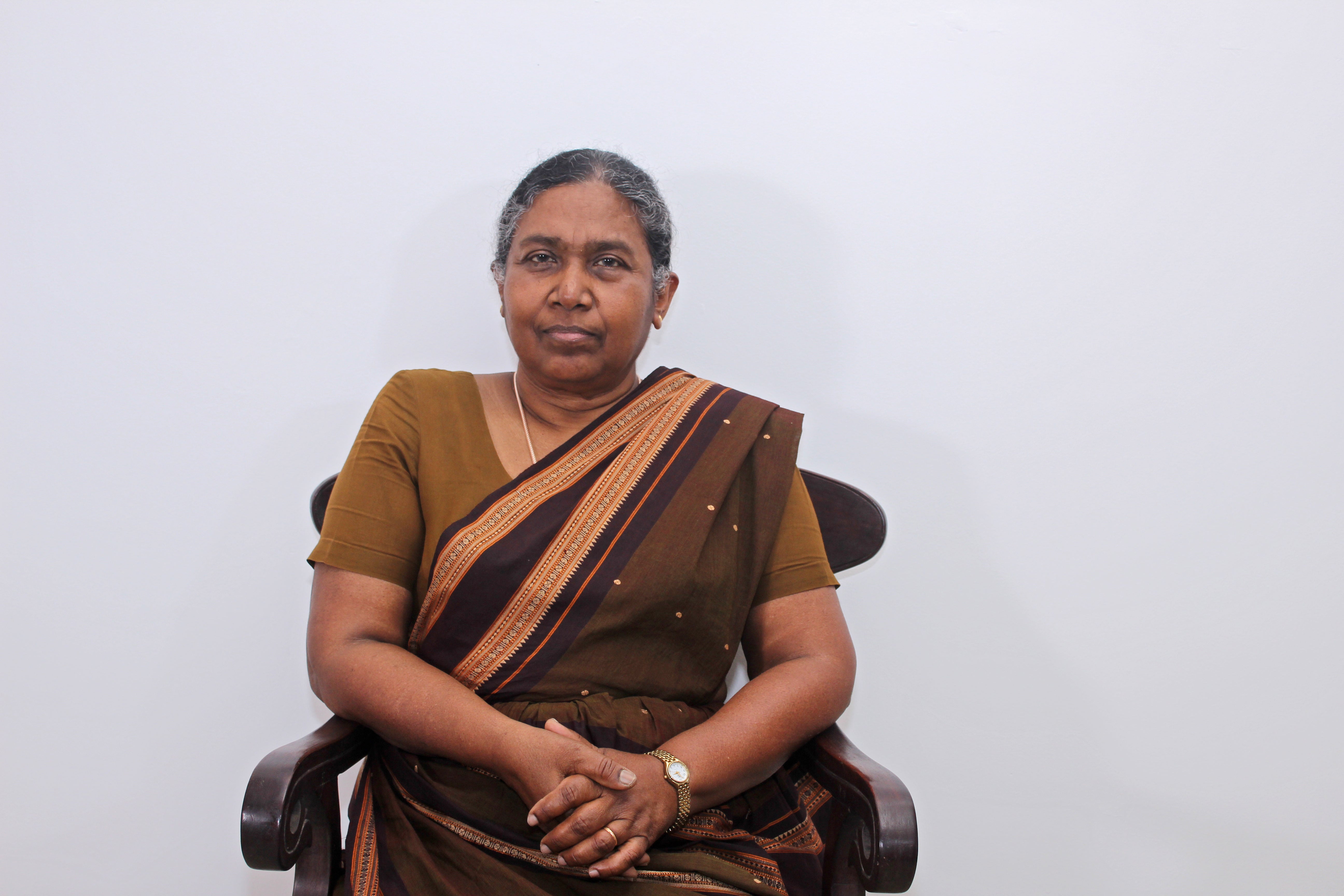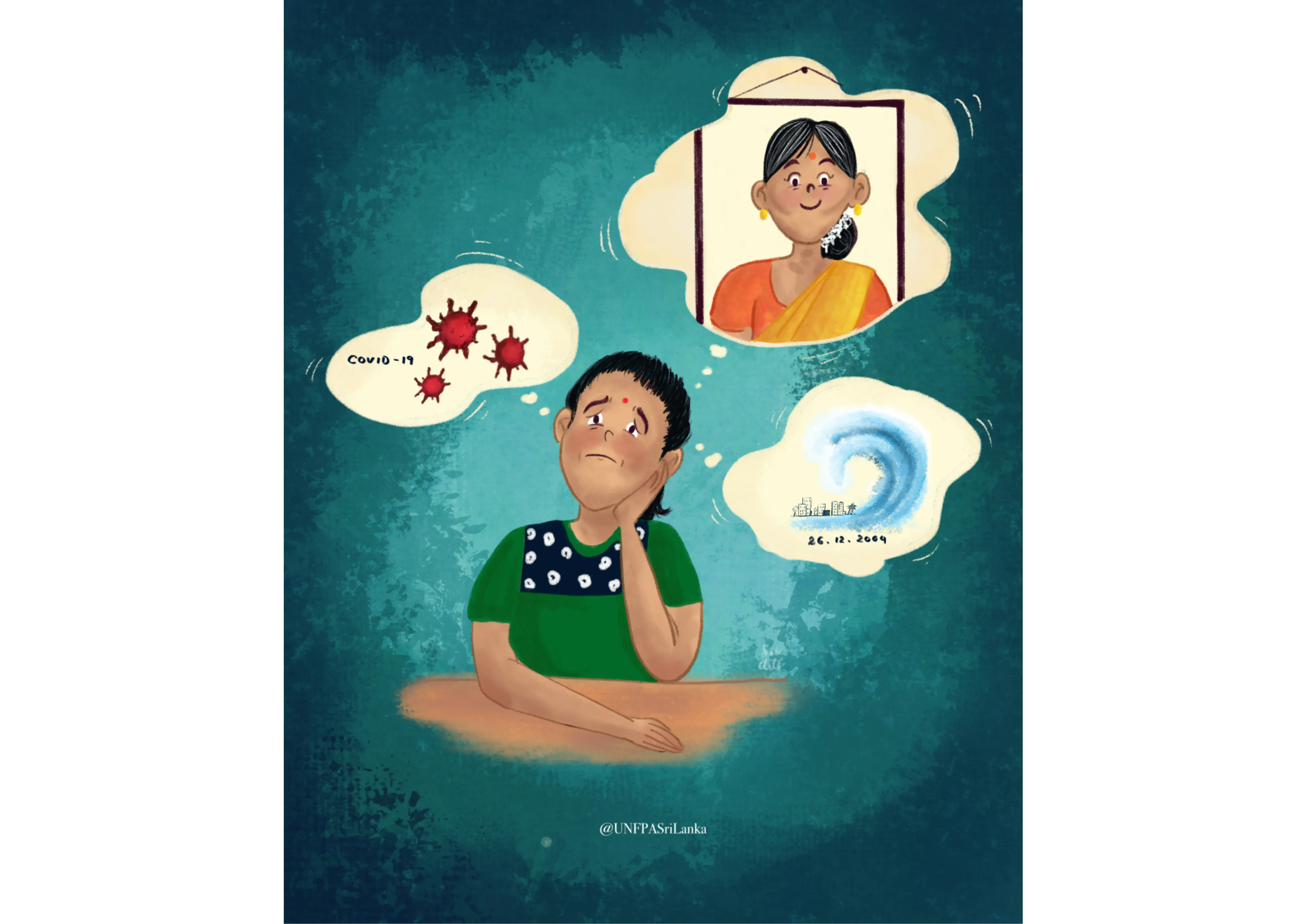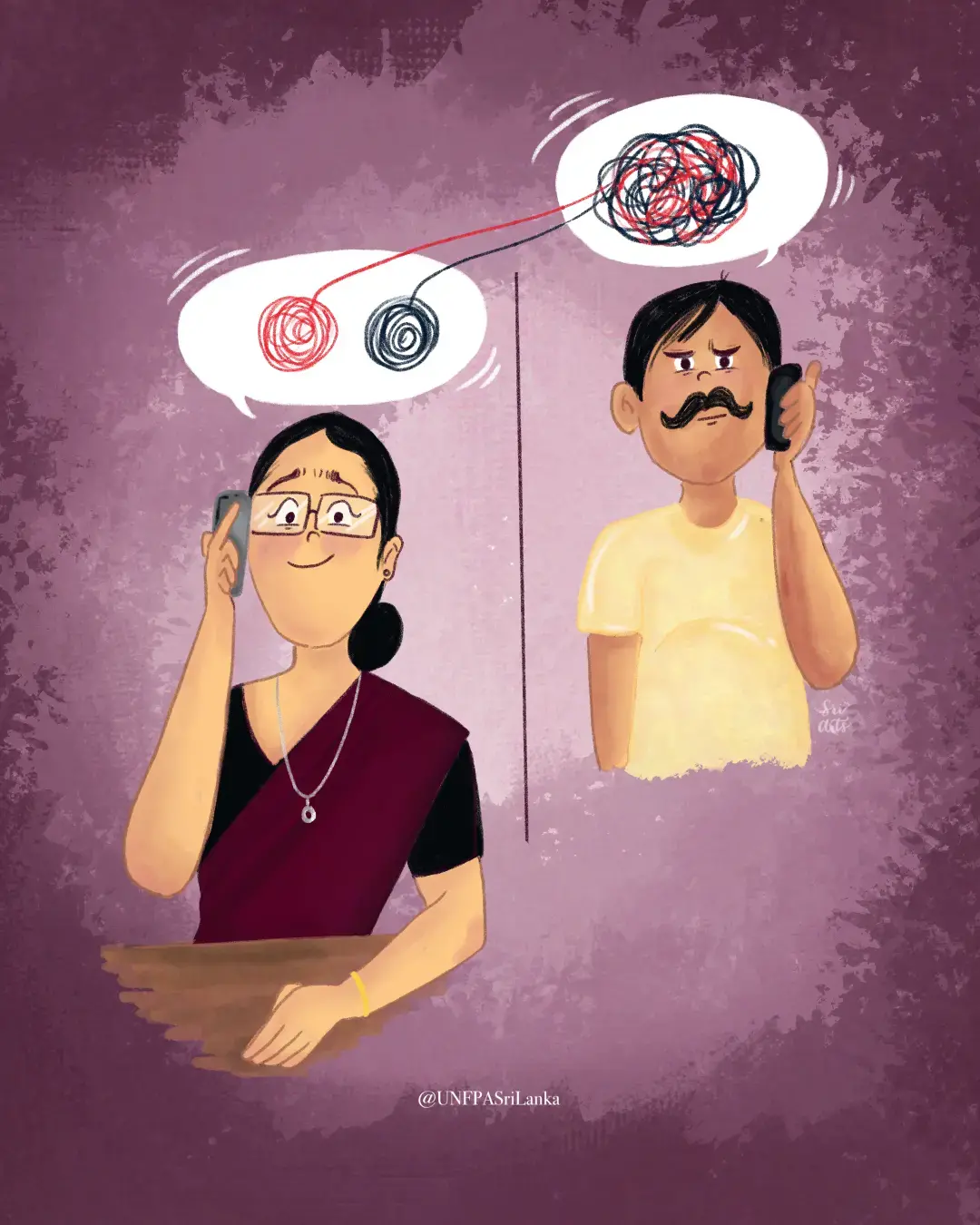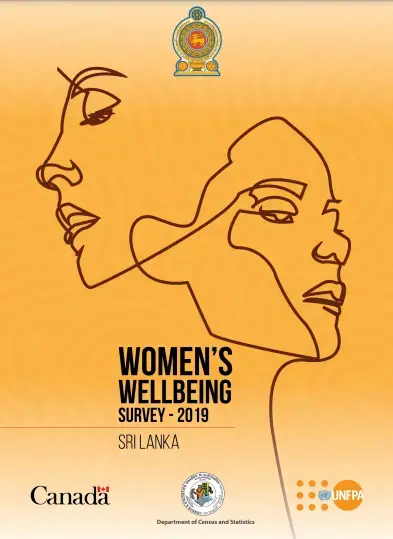This is the story of Manel Jayamanna, Executive Director, NCW
“The problem is that whilst the 1938 helpline was operational during office hours, domestic violence starts after office hours”
Four days after Manel Jayamanna took office as Executive Director of the National Committee (NCW) on Women, the country went into lockdown in a bid to curb the spread of the COVID-19 virus. According to Manel, these four days were just enough time for her to quickly gauge the work of NCW, the processes and procedures. She took notes on some of the immediate issues that needed to be addressed – the most important one being the operational hours of the 1938 helpline. So she worked hard and pushed to make it a 24-hour helpline and with the support of the Telecommunication Authority, provided her team with CDMA phones. “I don’t know if it was because we made it a 24-hour helpline but during the pandemic, the number of domestic violence cases started increasing. In April alone we received 460 complaints out of which 111 were on domestic violence.”
A 73-year-old mother of three daughters and grandmother of 5, Manel was looking forward to retirement. So when she was approached to take on the position of Executive Director of NCW she was hesitant. “I don’t have an academic background on this area on gender and women’s affairs so I was slightly reluctant to take on this position”, but since the post had been vacant for months, she accepted it as a 6month caretaker role. However, what started as a temporary position has now led to a fulfilling role.

“I went to a shelter for pregnant mothers where the youngest was 11 and the oldest was 16. The girls in this shelter were victims of incest and other forms of GBV. The 11-year-old could barely stand from all the violence she had faced. This is when I realized that this is the job for me. I had to do something”
Despite the administrative barriers, Manel is determined to not hold back. “You must understand, NCW was established only with cabinet approval, we are not a legal entity. So it is difficult for us to do more than counsel and refer survivors of violence to other service providers. The (NCW) is only a postbox. The victims/ survivors are at the mercy of other service providers”. Having witnessed the plight of these victims and survivors of GBV, Manel calls for a coordinated mechanism amongst service providers. “The survivors are extremely dependent on the service providers….they have complex issues. The picture is very bleak”. Therefore, the response mechanism requires a range of essential services that recognize and aim to meet the multiple needs of women and girls who are victims of violence and coordination is one of them. “We must empathize with the survivors and go beyond our job to help them and to ensure that they are not alone.”
“There was this young girl who had lived most of her life in a state shelter. But, once she turned 18 she had to move out on her own. Where does she go?” After leaving the shelter, she found a job and there she met a boy. Not long after she became pregnant. This girl having received no education on sexual and reproductive health was helpless. So it is important that we work together to prevent these issues.”
Manel has taken it upon herself to do more…much more. The stories of these survivors have become her driving force.
***
UNFPA works with the Government of Sri Lanka and other key stakeholders to ensure zero unmet need for contraception; zero preventable maternal deaths; and zero gender-based violence and harmful practices. As we head into a period of 16 days of activism against GBV from 25 November to 10 December, this year we want to draw special focus on the many frontline health workers and service providers like Manel who strive to create a safer world for all despite COVID-19. Together, let’s take action to shed a light on this shadow pandemic. Let’s also call for action by policymakers across the world to prioritize this issue even amidst of the pandemic because the world cannot prosper if a home is not safe for women and girls. This is an important part of our commitment to leaving no one behind.
If you or anyone you know is in need of help, reach out to organisations that can support you. They will treat all information confidentially.
Women in Need helpline - 0114718585 / 0777349100
Women's Help Line - Ministry of Women and Child Affairs - 1938





